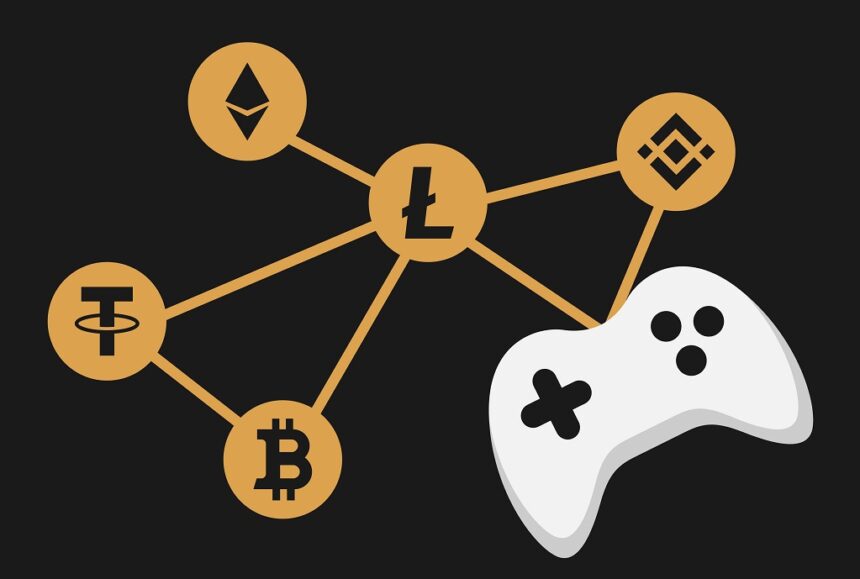GameStop has been in the spotlight for its fluctuating financial health, evidenced by its third-quarter balance sheet struggles. As the company explores new avenues for growth, many are questioning what Gamestop will do on the crypto side. With the potential of blockchain technology and cryptocurrencies to diversify revenue streams, GameStop could leverage this emerging market to bolster its financial standing. However, the volatile nature of cryptocurrencies presents inherent risks and challenges. Understanding GameStop’s financial condition and strategic options in the crypto sphere is crucial for investors and stakeholders alike.
Analyzing GameStop’s Current Financial Condition
To understand what steps GameStop might take in the crypto market, it’s essential to first analyze its current financial condition. GameStop’s recent third-quarter balance sheet highlights several critical factors:
- Revenue Decline: Despite efforts to diversify, GameStop has seen a decline in revenue over recent quarters.
- Digital Shift: With more consumers opting for digital purchases, GameStop’s reliance on physical stores poses a risk.
- Cash Flow Issues: GameStop has faced challenges in maintaining a positive cash flow, affecting its ability to invest in new ventures.
Key Financial Metrics:
| Metric | Q2 2022 | Q3 2022 |
|---|---|---|
| Revenue | $1.18 billion | $1.06 billion |
| Net Income | $-105 million | $-94 million |
| Operating Cash Flow | $-110 million | $-75 million |
Analyzing these metrics reveals that GameStop needs to innovate and potentially pivot to new markets to improve its financial standing. The volatility poses risks, but with the right strategy, entering the crypto space could offer GameStop an opportunity to rejuvenate its financial health. Ultimately, GameStop must carefully weigh the potential returns against the inherent risks in the volatile crypto market.
Potential Strategies GameStop Could Employ in the Crypto Market
Gamestop could consider several strategies to leverage the crypto market, potentially revitalizing its financial outlook:
Accept Cryptocurrencies as Payment
- By enabling customers to use cryptocurrencies, Gamestop could attract a tech-savvy clientele.
- This move could also streamline international transactions, reducing dependency on traditional banking systems.
Launch an NFT Marketplace
- Gamestop could venture into the rapidly growing NFT space by creating its own marketplace for digital assets.
- This platform could offer exclusive game-related NFTs, such as in-game items, collectibles, and artwork, generating new revenue streams.
Develop Blockchain-Based Games
- Partnering with game developers to create blockchain-based games could offer unique experiences.
- These games could utilize Gamestop’s NFT marketplace, enhancing user engagement and encouraging digital asset trading.
Invest in Cryptocurrency
- Allocating a portion of its assets to invest in cryptocurrencies could diversify Gamestop’s portfolio.
- This strategy could provide high returns if selected cryptocurrencies appreciate over time.
By exploring these strategies, Gamestop could not only enhance its financial stability but also position itself as a forward-thinking leader in the gaming industry.
Challenges and Risks of Investing in Cryptocurrencies for GameStop
GameStop faces several challenges and risks when considering investments in cryptocurrencies. Understanding these risks is crucial for strategic decision-making.
Firstly, market volatility is a major concern. Cryptocurrencies like Bitcoin and Ethereum can experience drastic price fluctuations within short periods. This volatility could lead to significant financial losses, impacting GameStop’s already strained balance sheet.
Secondly, the regulatory environment is uncertain. Governments worldwide are still figuring out how to regulate cryptocurrencies, and new regulations could restrict GameStop’s ability to operate or profit in the crypto market. GameStop would need to allocate resources to ensure compliance, which could be costly.
Moreover, security risks are paramount. Cryptocurrency transactions and storage are susceptible to hacking and fraud. To protect its assets, GameStop must invest in robust cybersecurity measures. Failure to do so could result in substantial losses.
Additionally, liquidity issues may arise. Converting crypto assets into cash can be challenging, especially during market downturns. This lack of liquidity could hinder GameStop’s operational flexibility.
Summary:
- Market volatility: High risk of financial loss.
- Regulatory uncertainty: Potential legal and operational constraints.
- Security risks: Necessity for advanced cybersecurity.
- Liquidity issues: Difficulty converting assets into cash.
Considering these challenges, GameStop must weigh the risks carefully before stepping into the cryptocurrency realm.
Frequently Asked Questions
How is GameStop’s third-quarter balance sheet affecting its potential crypto strategy?
GameStop’s third-quarter balance sheet has been under pressure due to declining sales and increasing operational costs. This financial strain may lead the company to seek new revenue streams, and venturing into the cryptocurrency space could be part of this strategy. However, the company must carefully evaluate the potential risks and rewards, considering its current financial constraints.
What initiatives has GameStop already undertaken in the crypto space?
GameStop has shown interest in the cryptocurrency market by launching its own NFT marketplace earlier in the year. This platform allows users to buy, sell, and trade non-fungible tokens. The company aims to capitalize on the increasing popularity of digital assets to diversify its revenue streams and attract a new customer base.
What challenges could GameStop face in expanding its crypto ventures?
Expanding into the cryptocurrency space comes with several challenges. These include regulatory uncertainties, cybersecurity risks, and the volatile nature of digital assets. Furthermore, GameStop needs to ensure that it has the necessary technical expertise and infrastructure to support its crypto initiatives. Balancing these challenges while addressing its financial issues will be crucial for the company’s success.
How might GameStop’s crypto strategy impact its overall business model?
If successfully executed, GameStop’s crypto strategy could revitalize the company’s business model by introducing new revenue streams and engaging a more tech-savvy customer base. This move could help the company transition from a traditional retail model to a more diversified and future-oriented business. However, the success of this strategy will largely depend on effective implementation and market acceptance.








Superb crypto content!
Crypto guides reliable!